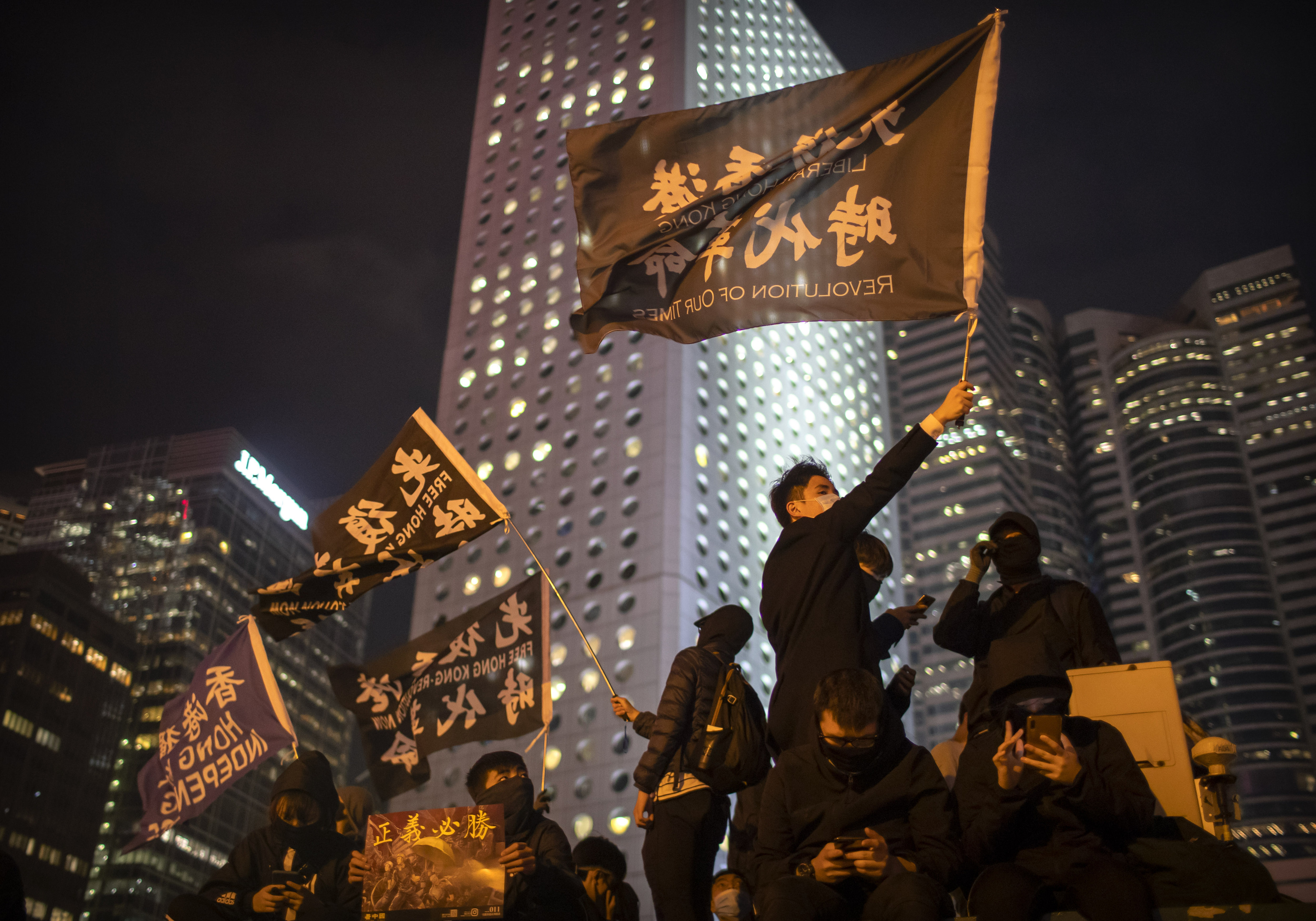"The defendant intended to revive the original ideas of the massive and sometimes violent protests of 2019," the magistrate said.
A journalist covering the protests in Hong Kong in 2019.Matthew Leung
Lucas de la CalCorrespondent in Asia
Chu Kai-pong, 27, was arrested on June 12 at a Hong Kong metro station. His offense was wearing a t-shirt with a pro-democracy protest slogan from the 2019 protests that shook this Asian financial hub. The slogan read, "Liberate Hong Kong, the revolution of our time." Chu also wore a yellow face mask with the inscription "FDNOL," an abbreviation of another slogan ("Five demands, not one less") that sparked the protests five years ago over a controversial extradition law to mainland China.
This Thursday, Chu was sentenced by a Hong Kong court to 14 months in prison for these slogans that the judge deemed "seditious." This sentence is the first to be based on the new national security law passed last March.
"The defendant intended to revive the original ideas of the massive and sometimes violent protests of 2019," said Chief Magistrate Victor So, highlighting the "seriousness" of the sedition charge Chu faced and to which he pleaded guilty during a recent hearing.
"The defendant had the intention to disturb the peace and incite hatred against the Hong Kong government," said the judge, who initially sentenced Chu to 18 months but reduced it by a third because Chu pleaded guilty.
Under the new security law, the maximum penalty for sedition has increased from two to seven years in prison. The sentence could even reach up to 10 years if "collusion with foreign forces" is discovered. In other words, if the accused is linked to any foreign country or agent complicit in the crime.
The Legislative Council, the local Parliament controlled by pro-China lawmakers, unanimously passed a new law introducing 39 offenses divided into five categories and penalties of up to life imprisonment for acts of "treason, insurrection, incitement to mutiny by members of the Chinese armed forces, and collusion with external forces to damage public infrastructure."
Trials can be held behind closed doors, and the police have the right to detain suspects for up to two weeks without charge. In summary, the local Executive now has much more power to suppress dissent. Any challenge to the regime's authoritarianism can be considered an act of treason and punished with life imprisonment.
"Today is a historic moment for Hong Kong," celebrated city leader John Lee earlier this year. "Legislation is necessary to protect us from those who invade our home. We need effective tools to protect ourselves."
Lee introduced the new legislation, ensuring it would guarantee stability in the Chinese territory. "The threat to national security is real. It is time to end this problem that has affected Hong Kong for 26 years," he emphasized.
This national security law coexists with the one launched in 2020 by the Chinese government following the pro-democracy protests and riots that shook Hong Kong the previous year.
